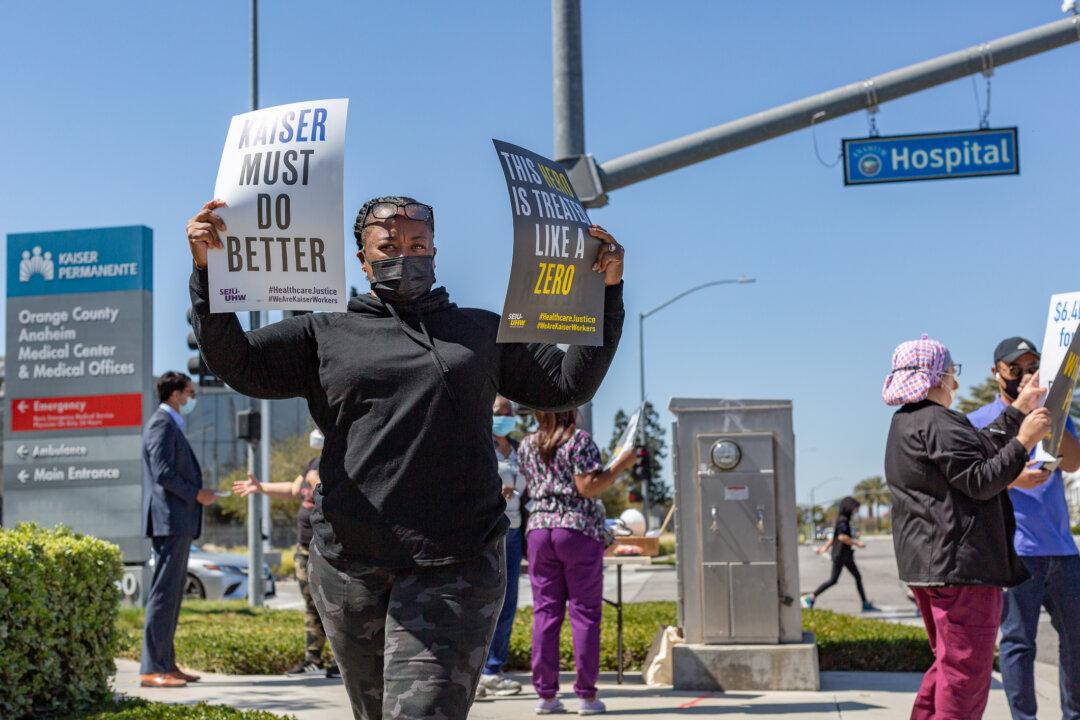More than 60,000 healthcare workers in California, Oregon, and Washington voted on Sept. 14 to authorize a strike against Kaiser Permanente if a labor agreement is not reached with the healthcare giant by the end of the month.
The Service Employees International Union-United Healthcare Workers West, the union representing the tens of thousands of healthcare workers, said 98 percent of its more than 57,000 members across California voted in favor of striking if a new contract cannot be reached.




